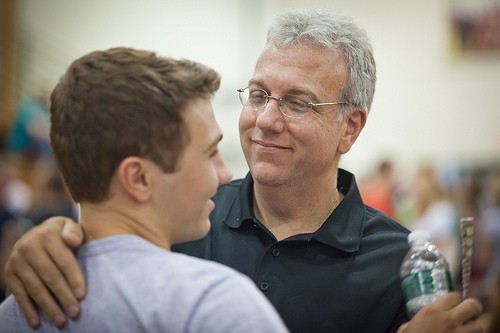"HOW PARENTS CAN HELP STUDENTS VALUE THEIR MISTAKES"
No one likes to make mistakes. We know we may not be perfect, but we try not to make too many mistakes – especially what we might consider “stupid mistakes”.
The problem may not be the mistakes themselves, but the attitude that both parents and students have toward their mistakes.
Making mistakes is a way of learning. We may make mistakes when we try new things, or stretch our limits
***** "Students who are afraid of making mistakes, or who have been protected from ever making (sometimes serious) mistakes, may not learn how to make decisions because they become paralyzed by the fear of making a mistake. Students who are afraid of making mistakes may be reluctant to try new things – one of the key experiences in college"
ALL PARENTS should give a look to these points.. ( FORWARS this to -------all-)
· Don’t jump in to rescue your student. Let him make the mistake – even though you may see it coming. Remember that this can be a positive experience.
· Help your student evaluate the experience. Making a mistake can be helpful if it means that your next decision will be different. What has he learned from this experience? What will he do differently next time?
· Help your student remember that learning is a process of constantly making and correcting mistakes, and that she has done it all of her life. How did she learn to walk, to ride a bike, to add 2+2?
· Avoid dwelling on the mistake, and help your student avoid dwelling on the mistake. View this as a new start with a new understanding and move forward.
· Help your student understand that one key to learning from being wrong is admitting that you are wrong. Help him bear the consequences of his choices and decisions. Help him take responsibility for his actions. Don’t allow him to blame the college, the instructor, friends, roommates, the situation.
· Try to find some successes in the experience. What did she do right? Did she handle the situation well? Did she show integrity and honesty in admitting to the mistake? Look at the positives.
· Help your student try to determine what caused the mistake. Was it caused by a lack of knowledge? Poor judgment? Carelessness? Learning the cause may help prevent another, similar mistake.
· Help your student put this situation in perspective. Is it a large, serious mistake, or something easily rectified? It may not be as serious as it seems.
· Help your student use this as an opportunity to reevaluate his actions and his choices. In the long run, the problem will not be the mistake itself, but not learning from the mistake and evolving.

@ akash





 CAclubindia
CAclubindia
